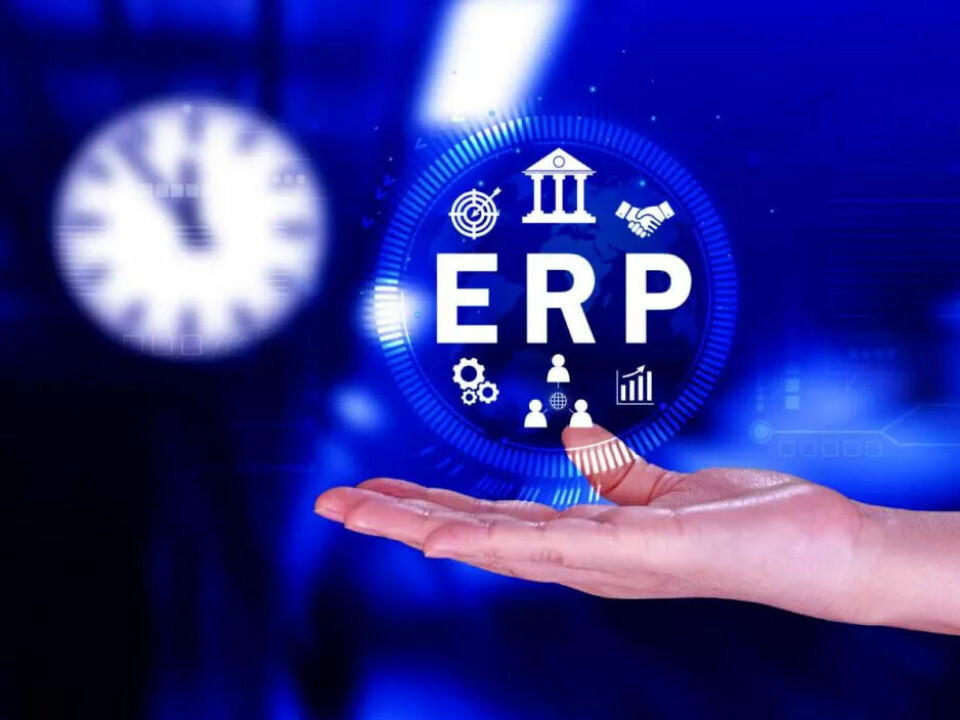Supply chain management
Modular ERP systems: How SMEs strengthen their resilience

Data-driven purchasing and efficient supplier management
The increasing interconnectedness of the global economy presents companies with complex challenges. Global crises, collapsing supply chains, and cyber threats have profound impacts on purchasing, procurement, and production planning. Small and medium-sized enterprises
(SMEs) are part of complex supply chains through which they supply or receive raw materials, intermediate products, or end products, and are exposed to the same risks as large companies, but are particularly vulnerable to disruptions due to their limited resources.
Efficient supply chain management is therefore becoming increasingly important. The failure of just a few components can significantly disrupt operations and lead to financial losses. Modular ERP systems (Enterprise Resource Planning) offer SMEs an effective solution to develop a resilient supply chain management strategy, allowing them to remain flexible and responsive.
The use of ERP systems enables SMEs to make purchasing processes more efficient, respond more quickly to production needs, and identify bottlenecks early. The search for the best offer in the purchasing process becomes more efficient: By integrating current data and costs - both direct purchasing costs and indirect factors such as packaging, transport, and customs - informed decisions can be made. The central recording and automatic calculation of prices and conditions in the ERP system ensure that not only the nominally cheapest but also the economically most advantageous supplier is selected.
Additionally, an ERP system supports supplier management by enabling a comprehensive analysis and evaluation of supplier performance. Factors such as delivery reliability, product quality, pricing, and special conditions (e.g., cash discounts) are systematically recorded and evaluated. The diversification of the supplier base is facilitated by the comprehensive overview and data-driven decision-making, which increases flexibility and supply security. Furthermore, cloud-based ERP solutions, in particular, offer location-independent access to relevant supplier data, simplifying international collaboration and enabling SMEs to deploy resources strategically and build long-term reliable partnerships.
Real-time transparency and control in warehouse logistics
Efficient warehouse management is crucial for the stability of the supply chain. It ensures that materials are available in the required quantity and at the right time to ensure smooth production and on-time deliveries. Future-proof warehouse logistics require the continuous networking of all relevant processes and data. Modular yet integrated ERP systems offer a powerful solution for this. They integrate data from central company areas such as purchasing, production, and sales, enabling a 360-degree view of all processes.
Centralized data management ensures that authorized users - from warehouse management to logistics management - can access inventories, orders, and delivery dates in real-time. This avoids isolated data silos and poor decision-making. Based on this data, the ERP system forecasts material requirements, calculates optimal inventory levels, and identifies discrepancies, such as inventory differences or delivery delays.
The use of cloud-based ERP solutions is particularly advantageous here. In addition to simplified data management, cost efficiency, and high scalability, they enable the flexible adjustment of inventories and material flows to operational requirements and market conditions using the latest software innovations - and constantly updated. Integrated logistics functions ensure transparent data collection and management of all warehouse movements in real-time - from goods receipts and issues to transfers, returns, and inventories. Further advantages of a cloud-based ERP solution
include regular security updates, simplified access to new warehouse technologies, and the ability to seamlessly integrate external warehouse management systems (WMS) or real-time tracking solutions via standardized interfaces.
Real-time collaboration across borders
According to the "ERP Barometer 2024," one in three companies plans to improve their supply chain management by using an ERP system. Modern ERP solutions offer the ability to access the system and relevant data from anywhere - anytime and from anywhere, as long as an internet connection is available. Standardized processes and integrated functions for multilingualism and multi-currency capabilities enable employees at different locations to access the same central data and respond quickly to changes. For example, SMEs can find alternative suppliers in other regions more quickly in the event of supply shortages and efficiently adjust their procurement processes.
In addition, ERP systems support SMEs in complying with international regulations (tax and customs regulations, import and export guidelines, data protection regulations, e-invoicing, etc.), thereby reducing the complexity of global supply chains. Cloud-based ERP solutions offer decisive advantages here: Many modern cloud ERP systems provide standardized interfaces such as EDI (Electronic Data Interchange) or RESTful APIs, which simplify data exchange. Automated manufacturer updates keep software and interfaces always up to date. Unlike on-premise solutions, which often require complex integrations, this reduces the implementation and maintenance effort.
Display significantly.
Future-proofing through innovation
In light of resource scarcity and intense competition, a flexible ERP solution is essential for SMEs to identify and address supply chain vulnerabilities. Cloud ERP systems provide an ideal foundation for this. They not only enable efficient and stable processes but also offer the best conditions for integrating modern technologies such as artificial intelligence and machine learning and unlocking new innovation potentials. Based on data such as inventory levels, order histories, delivery times, and return rates, AI-powered solutions generate precise forecasts and intelligently control processes. This allows for the optimization of inventory management, route planning, and inventory control, and the automation of recurring tasks such as order picking. This enhances the competitiveness of medium-sized businesses and prepares them for the future.